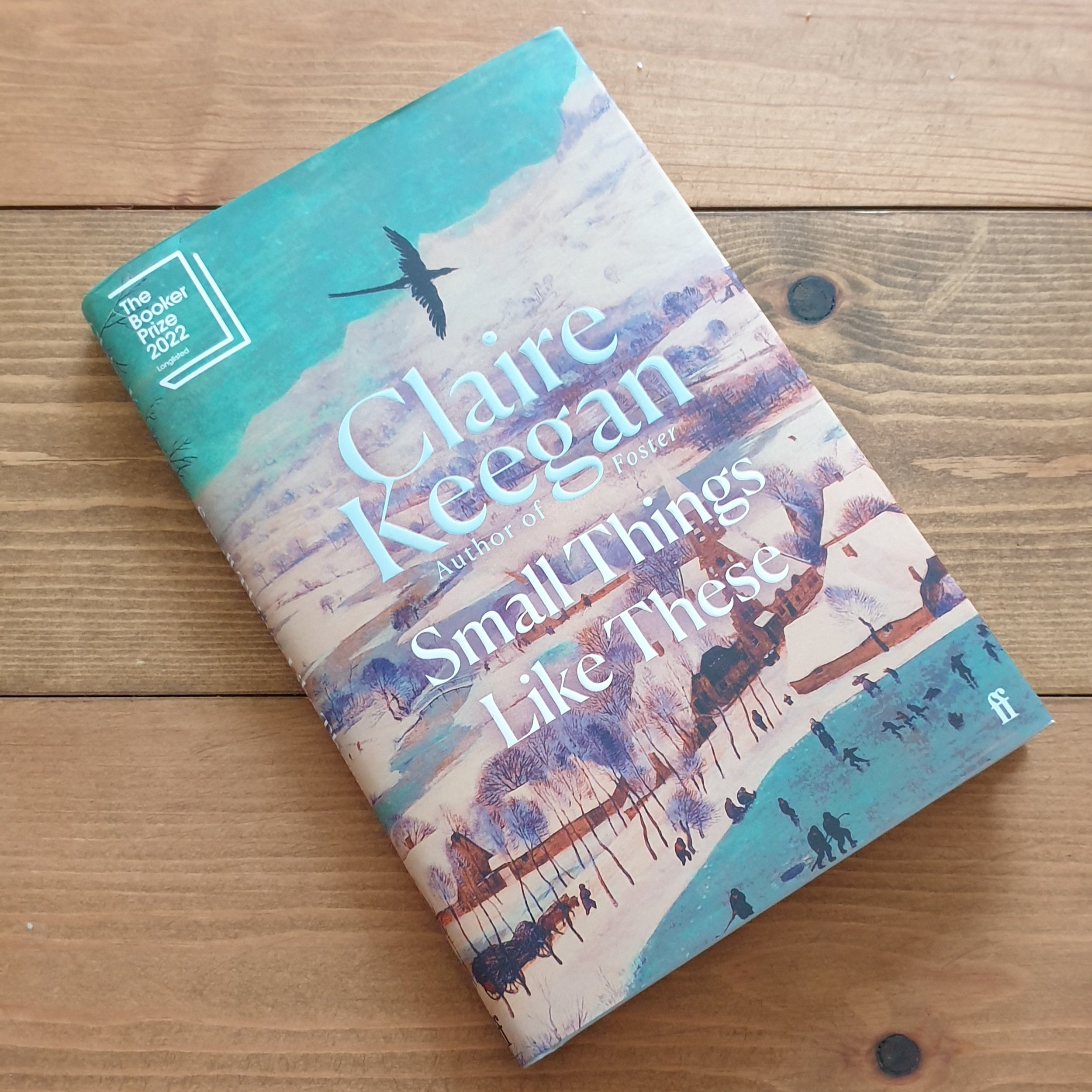Small Things Like These (2022)
Why this one?
You may or may not have noticed that I’d dipped my toes in the 2022 Booker Longlist, and managed to read a spectacular THREE of them before the Shortlist came out. Looking at the amount of full read-throughs and rankings appearing across Bookstagram, I feel rightfully ashamed. Anyway, the shortlist is now very much out there, so I thought I’d check out a few more.
Helpfully, the first of the batch is the shortest Booker nominee EVER (in terms of page-count), clocking in at a highly compact 116 pages (it doesn’t have the smallest word-count though - more on that in a week or two maybe). Were it to win, it would dethrone Offshore, the 1979 winner by Penelope Fitzgerald, as the shortest winner in Booker history. Let’s be honest, it would also be a bit of a surprise, since short winners haven’t really been the thing in recent Booker history.
Small Things Like These is written by Claire Keegan (1968- ; active 1999-) who was born in rural County Wicklow, Ireland. It has already taken home the 2022 Orwell Prize for political fiction. Keegan is known for short stories and writing that’s generally on the more economical side. Her acclaimed 2010 novella Foster was described as a “long short story” by the author, and was released as an Irish-language film, An Cailín Ciúin (The Quiet Girl) in May 2022.
Thoughts, etc.
Small Things Like These is simply a beautiful read. Its slim page-count contains a surprising amount of depth, both in terms of plot and emotional punch. The present-day narrative is set in mid-1980s Ireland, where coal and timber merchant Bill Furlong is preparing for Christmas with his wife and four daughters, as well as going about his work as usual, at a busy time of year. This work takes him to the local nunnery, which is a Magdalene Laundry site. His reaction to what he finds there, coupled with his reflections on his own upbringing as the child of a poor single mother, form the core of the novel and the impetus for its unifying theme.
It’s tricky to write too much about this one without giving too much away, but I’ll give it a bit of a go. It certainly has that “long short story” feel, with every word and sentence clearly precisely chosen for its contribution to the thematic unity of the piece as a whole. Yet within that, it manages to give you the feel of having observed a life lived in full - emerging with a clear sense of who Bill Furlong is, where he’s come from, and even (largely by implication) where his life is likely to take him.
The crux of the present day plot is of course the treatment of the girls and young women at the nunnery, yet somehow even in exploring and shining light on this incredibly dark chapter of Irish history, Keegan manages to find hope and beauty. Furlong lives surrounded by a culture of denial driven by a combination of selfishness and powerlessness, but his straightforward faith in human decency drives the mood of the novella in surprising directions.
The language, despite its economy, sparkles and shines, bringing that pre-Christmas period to life and lending it an atmosphere that rivals many a classic Christmas morality story (including the ur-text of that genre, of course!) although there are also echoes of Dubliners-era Joyce - if that’s not too cliched a reference. It’s given an explicit date (1985), I would imagine purposefully recent-ish to highlight that yes, this sort of thing was still going on virtually unchallenged in the late twentieth century, but in atmosphere and mood it feels absolutely timeless. So much so that it’s almost shocking (in a good way) when the occasional reference to 1980s pop culture punctures the narrative.
Overall, it’s a really memorable short read. It’s been described as heavily moralistic by some reviewers, which would often be a bit of a red flag to my sensibilities, but it’s so deftly handled that it never feels overly didactic - rather just celebratory of the resilience of basic decency, even through dark and difficult times.
Score
9
I’m not much of a reader of short fiction so I was slightly concerned that this would suffer by comparison to some of the longer reads that often populate this blog, but that absolutely wasn’t the case. If anything it’s spurred me on to experiment with more short stories and novellas in the future.
It would be a surprise Booker winner for the same reason, but I’d kind of love to see it happen. Let’s see if I’m still of the same opinion when I’ve read a few more from the shortlist!
Next up
A few more from the 2022 shortlist, I reckon…


